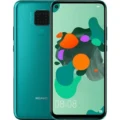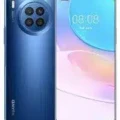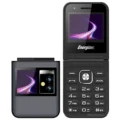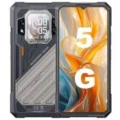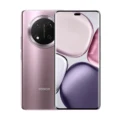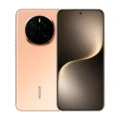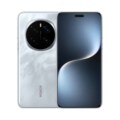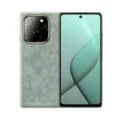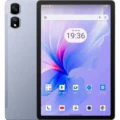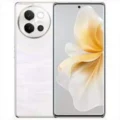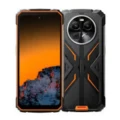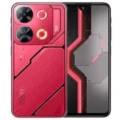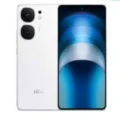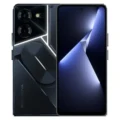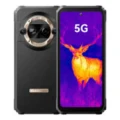Huawei P40
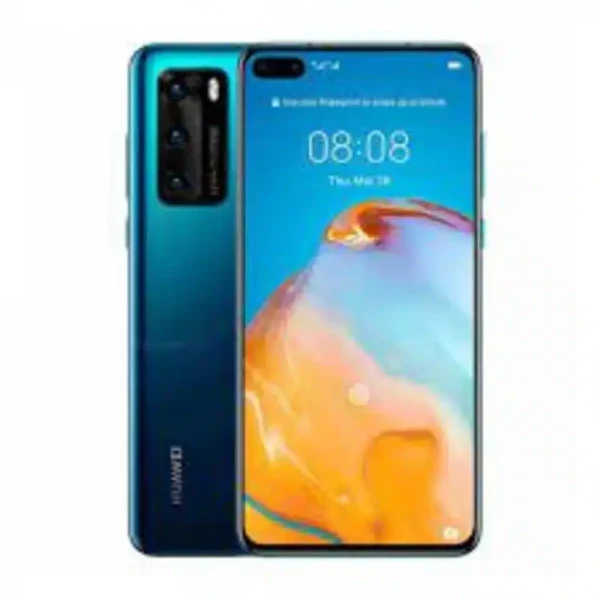


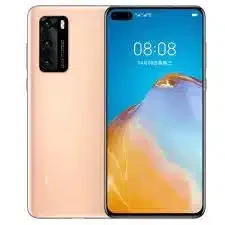
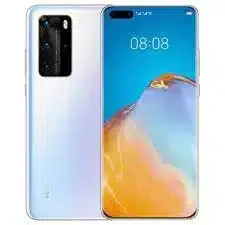
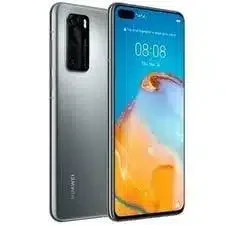
- : 6/8GB RAM Kirin 990 5G
- : 6.1" 1080x2340 pixels
- : 3800mAh Li-Po
- : 50MP 2160p
The Huawei P40 packs a big phone punch in a sleek package. Here’s what you need to know:
Big, Bright Screen: Enjoy movies, games, and browsing on a spacious 6.1-inch screen, easy to read even in sunlight.
Powerful Performance: Speed through tasks with the super-fast Kirin 990 chip, whether you’re editing photos, playing games, or multitasking.
Amazing Camera: Capture stunning photos and videos with the powerful triple-lens camera system, featuring a 50MP main lens for incredible detail.
Super-Fast 5G: Experience the next generation of mobile data speeds, downloading movies in seconds and enjoying lag-free streaming.
Long Battery Life: Stay powered all day with the large 4000mAh battery, plus enjoy super-fast 40W charging to quickly top up your battery.
Important Note: Due to recent restrictions, Huawei phones like the P40 don’t come with popular Google apps like Gmail, YouTube, and Maps pre-installed. While alternative apps and workarounds exist, it’s something to consider before you buy.
Think you can handle it? This phone is a great choice for power users who want a top-of-the-line experience, big screen, amazing camera, and super-fast speed. Just be aware of the app situation before you decide.
Want to Learn More?
Visit the official website of Huawei for detailed information about the Huawei P40: Huawei Official Website
Still Unsure?
If you’re still unsure about your choice, explore other options from Huawei at your nearest store: Huawei Store
Specs
Network
| 2G Network GSM 850 / 900 / 1800 / 1900 - SIM 1 & SIM 2 (dual-SIM) CDMA 800 / 1900 |
GSM 850 / 900 / 1800 / 1900 - SIM 1 & SIM 2 |
| 3G Network |
HSDPA 800 / 850 / 900 / 1700(AWS) / 1900 / 2100 |
| 4G Network | 1, 2, 3, 4, 5, 6, 7, 8, 9, 12, 17, 18, 19, 20, 26, 28, 32, 34, 38, 39, 40, 41 |
| 5G Network | 1, 3, 28, 38, 41, 77, 78, 79 SA/NSA |
| Speed | HSPA, LTE-A, 5G |
LAUNCH
| Announced | March, 2026 |
| Status | Available. Released 2020, April 07 |
BODY
| Dimensions | 148.9 x 71.1 x 8.5 mm (5.86 x 2.80 x 0.33 in) |
| Weight | 175 g (6.17 oz) |
| Build | Glass front, glass back, aluminum frame |
| SIMs SIM (Subscriber Identity Module) is a small card that contains mobile network subscriber's account information. This allows the phone using the card to attach to a mobile network. The SIM card is most commonly associated with GSM and UMTS mobile networks. Moving a SIM card from one phone to another allows a subscriber to switch mobile phones without having to contact their mobile network carrier. SIM cards can also be used by a phone to store limited amounts of data, such as phone numbers and text messages. |
Nano-SIM and eSIM or Hybrid Dual SIM (Nano-SIM, dual stand-by) IP53, dust and splash resistant |
Display
| Display Type Display Technology => A number of display technologies and types used in mobile phones => TFT (Thin Film Transistor), IPS (In-Place Switching), OLED (Organic Light Emitting Diode), AMOLED (Active-Matrix Organic Light-Emitting Diode), Super AMOLED (an even advanced version of AMOLED), Resistive Touchscreen (Resistive touchscreens contain two layer of conductive material with a very small gap between them which acts as a resistance), Capacitive Touchsceen (Capacitive touchscreen technology consists of a layer of glass coated with a transparent conductor) | OLED |
| Size | 6.1 inches, 91.3 cm2 (~86.3% screen-to-body ratio) |
| Resolution | 1080 x 2340 pixels, 19.5:9 ratio (~422 ppi density) |
PLATFORM
| Operating System OS => Every computer system run on a base software called Operating System (OS). Operating System controls all basic operations of the computer (such as smartphone, PDAs, tablet computers and other handheld devices). The Operating System allows the user to install and run third party applications (apps), apps are used to add new functionality to the device. | Android 10, EMUI 10.1, no Google Play Services |
| Chipset Chipset is a group of integrated circuits designed to perform one or a more dedicated functions, often with real time computing constraints, Popular smartphones are equipped with more advanced embedded chipsets that can do many different tasks depending on their programming. | Kirin 990 5G (7 nm+) |
| CPU CPU (Central Processing Unit) mostly known as processors, CPU processes instructions in order to carry out certain functions that make your device operate properly. Processors are often described as the brain of computers, smartphones and tablets, Smartphones and tablets rely on processors to carry out their every task, Processors are an incredibly important factor in selecting any type of computing device, including your smartphone. | Octa-core (2x2.86 GHz Cortex-A76 & 2x2.36 GHz Cortex-A76 & 4x1.95 GHz Cortex-A55) |
| GPU GPU (Graphics Processing Unit) is a single-chip processor designed to rapidly manipulate and alter memory to accelerate the creation of images in a frame buffer intended for output to a display, This includes things such as lighting effects, object transformations, and 3D motion. | Mali-G76 MP16 |
MEMORY
| Card Slot Memory Card Slot is a special slot for inserting a memory card. Memory cards allow you to expand the phone's built-in memory, A memory card (sometimes called a flash memory card or a storage card) is a small storage medium used to store data such as text, pictures, audio, and video, for use on small, portable or remote computing devices such as mobile phones, mp3 players, digital cameras. | NM (Nano Memory), up to 256GB (uses shared SIM slot) |
| Internal | 128GB 6GB RAM, 128GB 8GB RAM, 256GB 8GB RAM UFS 3.0 |
MAIN CAMERA
| Cameras Specs Today’s smartphones come equipped with a very comprehensive set of camera related specifications. Our smartphone, for many of us, has become our primary camera due to it being the one we always have with us. |
50 MP, f/1.9, 23mm (wide), 1/1.28", 1.22µm, multi-directional PDAF, OIS 8 MP, f/2.4, 80mm (telephoto), PDAF, OIS, 3x optical zoom 16 MP, f/2.2, 17mm (ultrawide), AF |
| Video | 4K@30/60fps, 1080p@30/60fps, 720p@960fps; gyro-EIS |
| Camera Features | Leica optics, LED flash, panorama, HDR |
SELFIE CAMERA
| Cameras Specs Today’s smartphones come equipped with a very comprehensive set of camera related specifications. Our smartphone, for many of us, has become our primary camera due to it being the one we always have with us. |
32 MP, f/2.0, 26mm (wide), 1/2.8", 0.8µm IR TOF 3D, (biometrics sensor only) |
| Features | HDR |
| Video | 4K@30/60fps, 1080p@30/60fps |
SOUND
| Loudspeaker | Yes |
| 3.5mm jack | No |
COMMS
| WLAN |
Wi-Fi 802.11 a/b/g/n/ac/6, dual-band, Wi-Fi Direct |
| Positioning |
GPS (L1+L5), GLONASS (L1), BDS (B1I+B1c+B2a), GALILEO (E1+E5a), QZSS (L1+L5), NavIC |
| Bluetooth Bluetooth is a wireless communications technology for exchanging data between mobile phones, headsets, computers and other network devices over short distances without wires, Bluetooth technology was primarily designed to support simple wireless networking of personal consumer devices. | 5.1, A2DP, LE |
| Infrared Infrared connectivity is an old wireless technology used to connect two electronic devices. It uses a beam of infrared light to transmit information and so requires direct line of sight and operates only at close range. | |
| USB | USB Type-C 3.1, OTG |
| NFC NFC (Near field communication) is a set of standards for smartphones and similar devices to establish peer-to-peer radio communications with each other by touching them together or bringing them into proximity, usually no more than a few inches. | |
| Radio |
Features
| Sensors Sensors are electronic components that detects and responds to some type of input from the physical environment. The specific input could be light, heat, motion, moisture, pressure and location, The output is generally a signal that is converted to use in computing systems, a location sensor, such as a GPS receiver is able to detect current location of your electronic device. | Infrared Face ID, fingerprint (under display, optical), accelerometer, gyro, proximity, compass, color spectrum |
BATTERY
| Battery Type Battery Type => Cell phones run on various kinds of batteries depending on the manufacturer, phone size or shape and features. There are basically four types of cell phone batteries => Lithium Polymer, Lithium Ion, Nickel Metal Hydride and Nickel Cadmium. | Li-Ion (Lithium Ion) |
| Charging The functionality responsible for recharging batteries in portable devices, such as mobile phones, significantly influences both battery lifespan and the practicality of daily product usage.The charging process, encompassing factors like voltage, current, and completion actions, is contingent upon the battery's size and type.Contemporary battery chargers dynamically adjust charging parameters based on the battery's current charging state. Charging an empty battery poses no safety risk, allowing for a quicker charging process. Consequently, many charging speed benchmarks, including ours, specify the battery level achieved after a 30-minute session on an empty battery.Standard chargers with a power output of 5V/1A, equivalent to 5W, serve as a baseline, with anything surpassing this speed classified as quick or fast charging. | 22.5W wired |
MISC
| Colors |
Silver Frost, Blush Gold, Deep Sea Blue, Ice White, Black |
| Model | ANA-AN00, ANA-TN00, ANA-NX9, ANA-LX4 |
| Price | About 520 EUR |
TESTS
| Performance |
AnTuTu: 486583 (v8) GeekBench: 12619 (v4.4), 3148 (v5.1) GFXBench: 37fps (ES 3.1 onscreen) |
| Display |
Contrast ratio: Infinite (nominal) |
| Loudspeaker | -28.9 LUFS (Average) |
| Battery (old) | Endurance rating 89h |
Reviews
Disclaimer Note
We strive to maintain accurate and up-to-date content on our website for general information purposes only. Please refrain from using the material for business, legal, or any other decisions.


